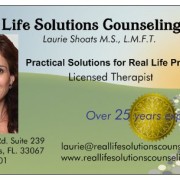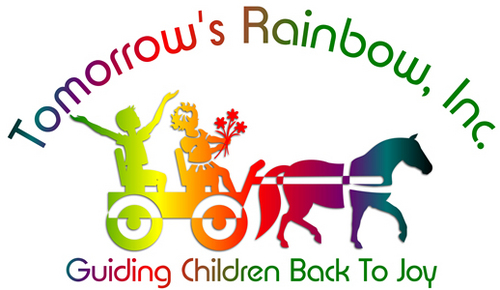You Complete Me, You Deplete Me, You Delete Me or None of the Above – Real Life Solutions Counseling, Inc
Blog #17 You Complete Me, You Delete Me, You Deplete Me or None of the Above
September 2015
So, which one best describes YOUR relationship?
Let’s start with “You Delete Me”. A relationship that is defined by this phrase can be characterized as one that cancels out one partner’s self-worth or identity. Your partner could be too controlling or demanding, or may have such significant and unpredictable mood swings that you feel like you’re walking on egg shells fearing you’ll upset your partner if the real ‘you’ is discovered. The ‘you’ that I’m referencing is the one who may have differing opinions and views as your partner.
This dynamic is revealed when I work with people who report “not even knowing who I am” anymore without their partner. They feel like their individual identity has been erased or cancelled. For obvious reasons, this relationship is not a healthy one.
The next one we will look at is the “You Deplete Me” relationship. A relationships depicted at “depleting” can often be interpreted as one where one partner reports feeling emotionally drained or exhausted. This is commonly accompanied by feelings of resentment by the partner who is feeling depleted. This feeling of being drained, leading to resentment is frequently associated with one partner wanting to end the relationship. Resentment is also a tremendous impediment to intimacy.
Now let’s look at relationship defined as “You Complete Me”. At first glance, for many people, this is a desirable way to describe a relationship. Unfortunately, this too comes with its own set of unique challenges. Ideally, we are all “complete” without our partner. Our partner is there to enhance our existence rather than complete it. The problem with believing your partner is necessary to “complete” you is that you will likely come across as needy. Your partner can also feel pressure to “make you happy” and you may be erroneously feeling that it is your partner’s responsibility to “make you happy”. Feeling that your happiness is someone else’s responsibility is a distorted thought. We are responsible for our own happiness.
The most fulfilling relationships consist of two healthy individuals with their own set of hobbies and opinions, being able to feel safe and secure enough in the relationship to respectfully express differences of opinions. Neither partner walking on egg shells. Neither partner feeling like their own identity has been lost in the relationship. Neither partner feeling like they “need” the other person to feel complete.
Call me, let’s chat.
Laurie Shoats LMFT
954.802.1601














